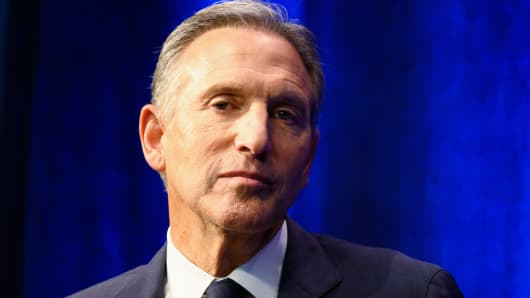This week, ex-Starbucks CEO Howard Schultz announced a potential Presidential run as an independent candidate during an interview on CBS. Frustrations with both parties' handling of the nation's finances, particularly the high levels of debt are part of his reasoning to potentially run as an independent candidate.
Yet a couple of former high-ranking government officials insist the Brooklyn-born billionaire got it wrong. One of them is Jason Furman, the former head of Obama's economic council, who rebuked what he called Schultz's "obsession" with America's $21 trillion-plus debt.
"America is not a company," Furman, now a professor at Harvard University, told CNBC this week. "And in fact, many successful companies are much more leveraged than the United States," he said, adding that the present value of America's growth far exceeded its debt obligations.
Both Furman and former Treasury Secretary Lawrence Summers insist that it's time for Washington to end its "delusion" with debt reduction. In a Foreign Affairs essay, the economists argued that large deficits are a function of falling revenues, rather than surging entitlement spending.
"More spending is not, by itself, something to be afraid of," they wrote, arguing that high levels of debt could be sustained in the medium-term, given that low interest rates mean borrowing costs are lower.
Given the areas in which America requires large investments--such as infrastructure, education and public services--the problem is less about cutting spending and more about increasing revenues, Furman told CNBC. While he called the debt "like termites slowly chipping away at the wood," he insisted it wasn't an immediate danger.
"We've not been on a spending spree in fact we've been on a tax cutting spree," the former chairman of the National Economic Council said, referencing President Donald Trump's signature tax-reduction bill.





